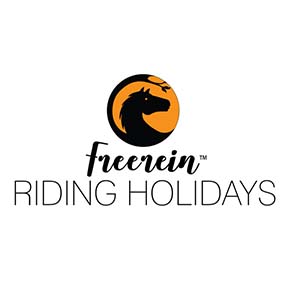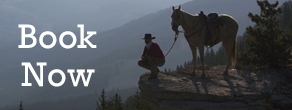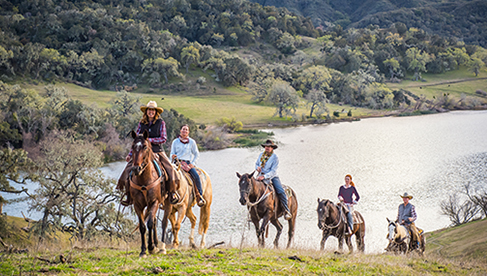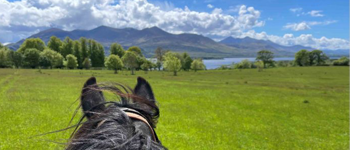Georgia- Cumberland Island Day Two



Today we ventured out to see more of the horses and wildlife on Cumberland Island. The horses on Cumberland travel in family groups, usually with a dominant stallion. Because the island is for the most part undeveloped and subtropical forest, there are not many grazing areas. The horses must compete for the few grassy grazing areas on the island, the majority of which are the lawns of the few houses and historical buildings or ruins scattered around the island. Fresh water is supplied by an aquifer and Lake Whitney, which is the largest lake on the island.
We watched a family group graze on the lawn outside of Greyfield Inn. There was a black foal, which must have been only about two months old, traveling with four other horses. The foal danced around a bit for our cameraman and got quite close. I had read stories before coming to Cumberland about people who had thought that the horses were so cute that they would get a really close look and receive a kick or bite in return. The horses are living in the wild, so I knew to keep my distance and warned the rest of our group to watch out too.
I felt like we were on a safari as I stood behind a tree and quietly observed the group dynamics. I also tried to pick out the different breeds that have been combined in each of these horses on Cumberland. Fred told us how the Spanish left their horses on the island, which later bred with plantation owners' abandoned horses. Thus the horses are a mixed lot with a bit of Appaloosa, Thoroughbred, Quarter Horse and a few other breeds.
Cumberland's horses have been somewhat controversial, Fred told me. The horses have been monitored but not controlled with regard to population size or additional nutrition. While some people worry that their health is not the best, others people are concerned that the horses are causing the island to further erode. The horses mainly dine on sea oats and other vegetation which helps to hold the sand on dunes in place. When this vegetation is lost, the dunes erode further. The horses are non-native to the island, meaning that we humans brought them over. We also brought over hogs, which continue to do damage to the island.
No matter what your feelings are on the horses, there aren't that many places in the world where you can observe horses living on their own in the wild. Cumberland Island is definitely worth a visit. It is spectacularly diverse, rugged and beautiful. If you are into observing wildlife, hiking, camping or getting away to a luxurious and historical enclave like Greyfield, where there are no telephones or televisions and access to the mainland is limited, you'll love the adventure of visiting Cumberland. I know I wanted to stay a few more days to try and find one of the island's bobcats. I had already seen deer, alligators, horses, an armadillo, herons, hummingbirds, giant live oaks and other wildlife.
A storm was headed our way, so we drove on the beach back toward Greyfield. The beach was devoid of people. I had thought that Sea Island was quiet, but the beaches of Cumberland were empty and hauntingly beautiful, as a strong wind began to blow.
Now, it's time for dinner. We have a candlelit supper of fresh fish and other island delights. I'm told we'll dine as a group at the original Carnegie dining table that is large enough to seat all the guests. Then, I will definitely crash, as it was a long and wild day.
Darley Newman is the host of the Emmy Award-winning Public Television series Equitrekking®, which takes viewers on horseback riding vacations around the world. Equitrekking is broadcast on PBS stations and on international networks in over 30 countries.
Watch the Equitrekking video promos and purchase Equitrekking DVDs in our Store. Learn about equestrian vacations and book a horseback riding vacation at EquitrekkingTravel.com





